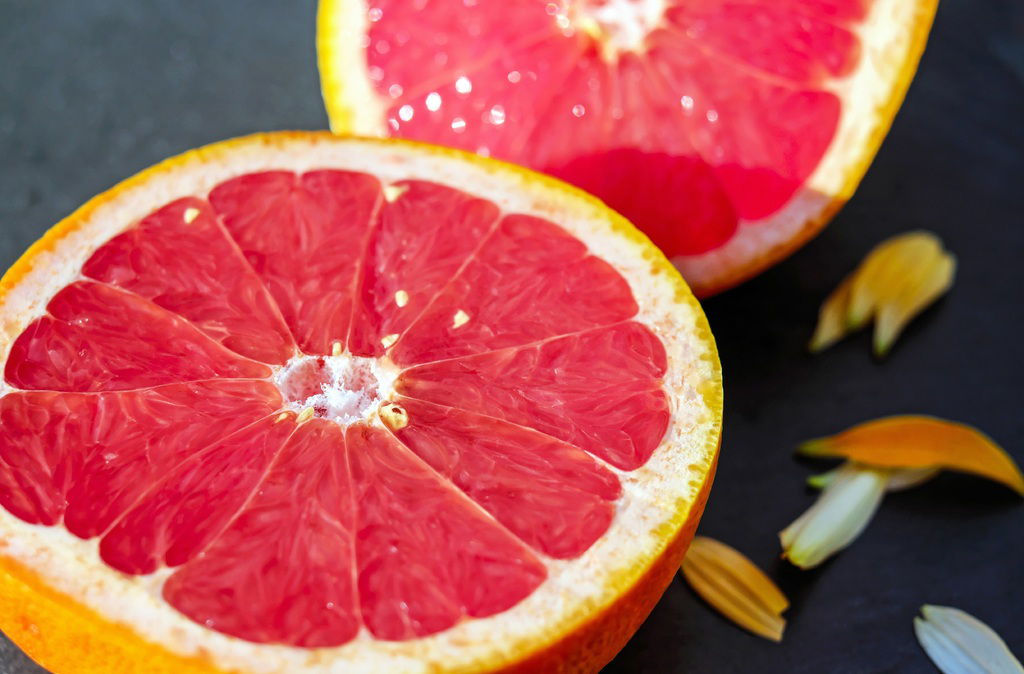The benefits of oranges go well beyond those related to vitamin C present in the fruit, now see what they are, along with the harms and contraindications.
You certainly know the orange, do not you? It is one of the most popular fruits in the country and the world outside. But do you know why? Do you have any idea of all its health benefits?
No? So come to know more about this powerful fruit!
What is Orange?
Orange is a citrus fruit, originating from the orange tree, which is native to India and from countries to its environs. It was brought to Brazil in the 16th century by the Portuguese.
The fruit is famous for easily adapting to the various types of soil and climate because it has few calories, its sweet and sour taste at the same time, and for having so many nutrients and vitamins.
The orange is formed by buds ranging from yellow to red. They contain fruit juice, much used to make cakes and sweets, for example. It has several types, which means that its flavor is well diversified.
It is worth noting that it is important to eat or use the orange soon after it is cut because its vitamin C oxidizes quickly and the fruit ends up losing its important properties.

What are their nutritional properties and values?
Orange has about 62 calories every 130 grams. Its glycemic index is considered average, although it owns 16 grams of carbohydrates.
It also contains 3 grams of dietary fiber, which is equivalent to 13% of what we need per day of these nutrients.
The most famous property of the fruit is undoubtedly the vitamin C. Orange offers more than you need daily for this vitamin (45mg). Each fruit has an average of 70mg.
In addition to vitamin C, orange also has vitamins A and B. Among other nutrients, it is important to mention calcium, copper, folate, and potassium.
The fruit still has several phytonutrients (essential for our body, because they strengthen the body, leaving it more healthy and nourished), such as anthocyanins, polyphenols, flavonoids, and hydroxycinnamic acids.
Because orange is so rich in vitamin C, its intake along with supplements or other foods with iron boost a greater absorption of this mineral.
What are the types of orange?
There are many types of oranges, but they are basically part of two different species: Citrus sinensis and Citrus aurantium.
The first species concerns sweet oranges, which are the most used and sold.
The second brings together sweet and sour oranges, which may have their shells and pulps used in cooking, while their flowers are most often used for perfumes. Know the main types of oranges in our country:
Orange Bahia
This type is characterized by not having seeds and being easier to peel, so it is usually used in salads.
In some places, the Orange Bahia is called Navel Orange, because it has a protrusion in its lower part.
Orange Select
It is very similar to the Orange Bahia. It is slightly acidic, has a pale yellow peel, and has a very juicy pulp. Nowadays, it is not more popular in the market and therefore its cultivation is reducing a lot.
Orange Lime
Orange lime has a sweet and mild taste, being the least acidic among the well-known oranges. For this quality, professionals recommend it for children and individuals with digestive problems.
It is excellent to be eaten directly because its pulp is juicy and tasty. Despite this, it is not usually used in cooking.
Orange Pear
This variety adapts very well to varied climates and is the most planted. It is smaller than the other oranges cited and has a moderately sweet taste. It is great for direct consumption and for the preparation of juices and vitamins.

What are the Benefits of Oranges?
The benefits of oranges are more than you think. We’ve made a list of most to give you an idea:
1. Prevention of heart problems
The main causes of heart problems are related to the clogging of the arteries, which occurs due to excessive consumption of fatty foods, among other factors.
Flavonoids, contained in oranges, help lower cholesterol and keep your arteries from getting clogged. That way the chances of cardiovascular problems and heart attacks reduce a lot.
2. Skin health
Antioxidants and vitamin C act very well in renewing cells and slowing down the aging process of the skin. In addition, they fight free radicals, major dangers to epithelial health.
3. Brain health
Folic acid and folate, elements that are among the components of oranges, boost the development of the brain, and allow it to stay healthy.
That is why fruit consumption is recommended for pregnant women because it helps protect the baby from possible neurological problems.
4. Maintenance of immunity
Since only one orange provides more than 100% of the daily need for vitamin C, you can be sure that your body will be more protected and with a stronger immune system against infections and diseases.
5. Eye Health
It is not just skin that suffers from aging. The eyes are also damaged over time.
Because oranges have lots of vitamin C (look her over again), potassium, and vitamin A, they help improve the health of your eyes.
6. Prevention of cancer
Research has shown that one of the orange compounds, D-Limonene, is effective in preventing some types of cancer, such as breast, skin, and lung cancer.
It is worth remembering that vitamin C and antioxidants help maintain the body’s immunity and consequently fight cancer cells.
7. Avoid stomach ulcers
Oranges are very rich in fiber, which are beneficial to the health of the digestive system. The more fiber you consume, the less chance you will have of acquiring ulcers and other problems in the intestines and stomach.
8. Haircare
Vitamin C helps produce collagen and this substance is essential for both the health of the hair and the skin. It causes the capillary tissues to remain together, which avoids and retards the calvary.
9. Prevention of hardening of the arteries
Once again vitamin C kicks in! Now it is helping to strengthen and maintain the elasticity of the arteries, which avoids them from hardening and causing various types of problems.
10. Helps the quality of vision
Elements with antioxidant properties (lutein, flavonoids, alpha, and beta-carotene, etc.) along with vitamin A make a very important combo to improve the quality of your vision.
11. Get Bad Breath
The orange in the form of tea is very useful to complement your oral hygiene. Drinking orange tea daily for a month can actually lessen your bad breath.
12. Stimulates blood circulation
In addition to stimulating blood circulation, orange also improves the flow of the lymphatic system (set of vessels essential for the circulatory system). This helps to reduce nervousness and insomnia.
13. Aphrodisiac use
Its aphrodisiac properties are mild but its frequent and routine use can be very helpful in resolving certain sexual disorders, such as low libido, impotence, and frigidity.
14. Good choice for diabetics
Diabetic people cannot absorb glucose because their pancreas fails to produce insulin. Because oranges have many fibers and their glycemic index is not high, this may help in feeding diabetics. But remember that your consumption should be guided by a health professional to not make mistakes.
15. The health of the fetus
One more benefit, especially for pregnant women. This time it is thanks to folate (produces structural proteins), which helps in the development of the fetus with good health.
16. Treatment of mastitis
Newly breastfeeding mothers can benefit greatly from orange peel tea.
This is because it offers very useful nutrients in preventing problems such as mastitis (hardening of the breasts by the accumulation of milk).
17. Fighting viral infections
Two components already mentioned, flavonoids (has the antioxidant function) and polyphenols (has the anti-inflammatory function), are great in fighting viral infections.

18. Bone and dental health
This benefit comes thanks to calcium, an element known to be essential for the health of the bone structure and for the development and strength of the teeth.
19. Feeling of satiety
Because they are low in calories and high in fiber, oranges provide that full belly feeling and satisfaction, which prevents you from eating too much during the day.
20. Antioxidant functions
As you may have noticed, orange has a high amount of antioxidants in its properties. The function of an antioxidant is to stop free radicals.
So they stop the harming cells and this avoids many problems, diseases, and inflammations in the body.
21. Decreased blood pressure
Hesperidin (normalizes blood circulation) and magnesium (helps control blood sugar, as well as other functions) help stabilize blood pressure.
22. Prevention of arthritis
Drinking a glass of orange juice daily can help prevent inflammations that lead to problems such as arthritis. This is due to its anti-inflammatory components.
23. Prevention of respiratory problems
Oranges are rich in a phytonutrient called beta-cryptoxanthin, which is significant in reducing the risks of lung cancer and asthma.
24. Reducing dandruff
One more benefit of taking the orange peel juice. In addition, use the pulp on your scalp. This will lessen the chances that dandruff will appear, just as it will help with hair hygiene.
25. Prevention of kidney stones
Consuming daily from one-half to one liter of orange juice decreases urinary pH, as the rate of excretion of citric acid rises. This makes the chances of crystals and kidney stones drop a lot.
26. Debugging function
Some of the properties of orange assist in the elimination of non-metabolized substances that accumulate in some organs, which can cause serious problems.
27. Avoid urinary problems
Consuming orange juice during the day can help boost normal bladder and prostate function, which fights infections and prevents inflammation.
28. Fight against tonsillitis
Tonsillitis is inflammation of the tonsils, which can cause severe pain in the throat. To fight it, it is indicated to take a glass of orange juice with aloe vera, in fasting.
29. Decreased fever
Vitamin C can eliminate various toxins from the body and thus reduce fevers. In addition, it provides nutrients that leave the body healthier.
30. Collaborate for the balance of the organism
The orange contains several alkaline minerals, which allow balancing the body after the ingestion. Many people are surprised by the fact that the fruit is acidic. It means it helps you to alkalize your body.
31. Regulates cholesterol levels
In 2010, a study found that drinking orange juice for 60 days lowers LDL (bad cholesterol) in people who have high cholesterol.
What are the ways to consume oranges?
Certainly, orange juice is the most consumed form of fruit. The orange is very flexible with respect to the forms of consumption.
Natural
It is the most indicated form because it is the most beneficial to health. The ingestion of its nutrients is more direct and more efficient in that way.

Juice
As you know the benefits of orange juice so intake of the 100% pure juice is good for health, which generates a greater use of its nutrients.
It is recommended that you drink the orange juice as soon as you finish preparing so that it does not lose any of the light-sensitive nutrients, such as vitamin C.
In the salads
Adding the orange in your salad will give a special flavor, and enrich it with even more benefits.
Orange tea
Orange tea and its peel have several advantages for the body. You can even add herbs and leaves that complete the benefits.
What are the benefits of orange in weight loss?
Orange is widely used for weight loss because it has few calories and is full of nutrients and vitamins that are beneficial to the body.
To enjoy this advantage, it is essential to consume the orange in its most natural and pure form, since its bagasse stores a large part of the vitamins and in addition, your body loses several calories while digesting it.
It is worth replacing sweet and fatty foods in the dessert with orange. This is also a good way to avoid gaining weight.
What are the harms of orange?
Orange has many more benefits than harm, but it is still good to mention some potential problems.
Being so rich in vitamin C, some people may develop allergic reactions to fruit. Before you consume, find out if you have any type of food hypersensitivity.
Consuming too much orange is not recommended as it can cause problems like diabetes.
Does orange have contraindications?
In addition to being allergic to its components, orange should also be avoided for people with gastric problems, such as ulcers, colitis, and enteritis, as well as hepatitis and cholecystitis.
This is because of the high amount of fruit acidity can further aggravate these problems. Pregnant and nursing women should avoid using the essential oils of orange during these periods.
I believe now you know the benefits of oranges and their properties.